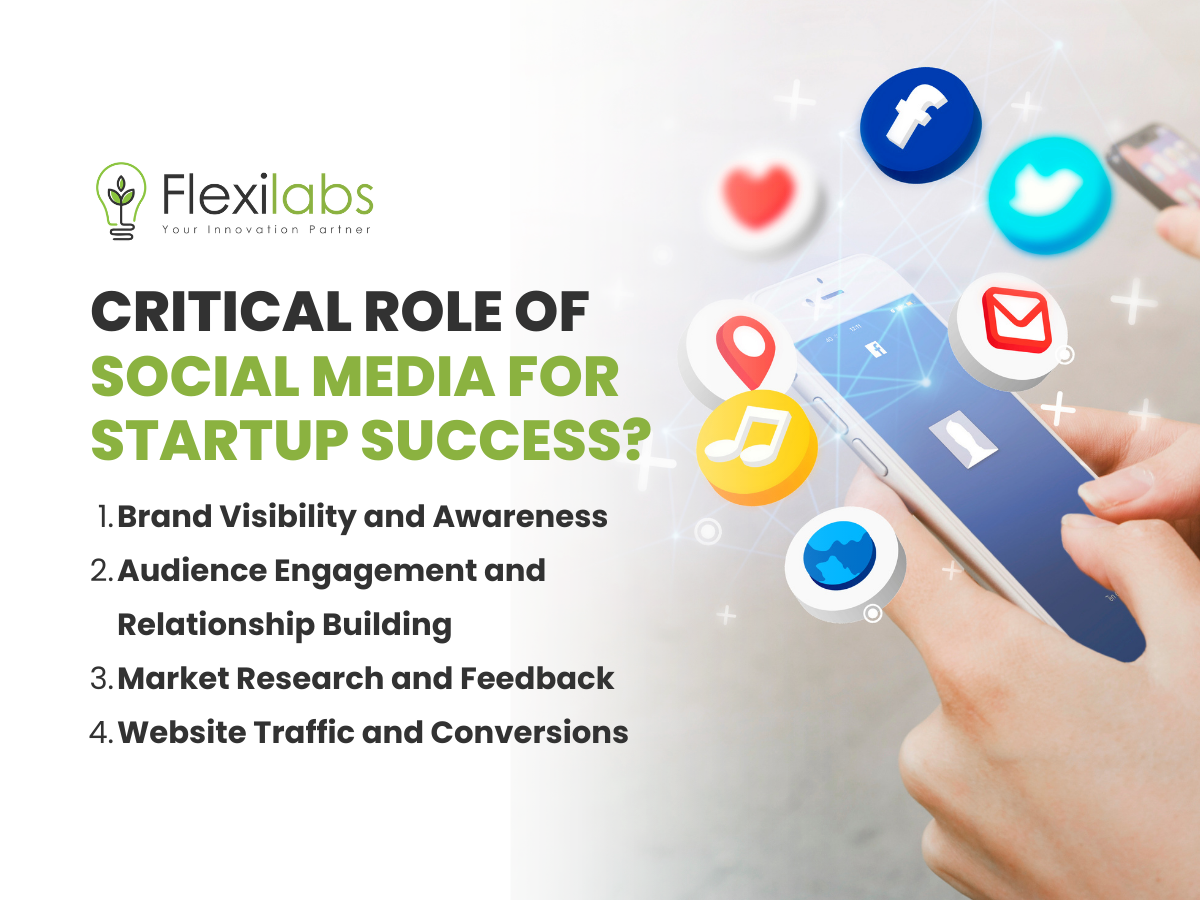Social media has become a cornerstone of marketing strategy in today’s digital age, particularly for startups aiming to carve their niche in competitive markets. According to Smart Insights, approximately 5.04 billion people worldwide are active social media users, representing nearly half the global population.
As such, using social media has become imperative for startups seeking to establish their brand presence and drive conversions and revenue. However, with many platforms, content types, and growth strategies available, navigating the social media landscape can be daunting for entrepreneurs.
In this article, we’ll delve into the critical role of social media for startup success. We will discuss choosing the right platforms, crafting compelling content strategies, and implementing growth hacks to maximise impact.
What is the critical role of social media for startup success?
Social media serves as a powerful tool in digital marketing for startups. It helps establish their brand presence, connect with potential customers, and drive conversions. Here are some key reasons why social media is essential for startup success:

- Brand Visibility and Awareness. Social media platforms provide startups a powerful channel to increase awareness among their target audience. Through social media, startups can effectively showcase their products or services to a broader audience.
- Audience Engagement and Relationship Building. Social media for startups helps to directly engage with their audience, fostering meaningful relationships and building a loyal customer base. Through interacting with customers on social media, startups can demonstrate their dedication to customer experience and establish trust.
- Market Research and Feedback. Startups can utilise social media platforms to conduct market research, gather valuable insights, and obtain feedback from their target demographic. Through this daa, startups refine their products or services and tailor their marketing strategies accordingly.
- Website Traffic and Conversions. Social media is potent for driving website traffic and generating startup leads. Startups can direct users to their websites, increasing conversion rates and sales.
How do you choose the Right Social Media Platforms?
With countless platforms available, choosing the right ones for your social media for startups can be daunting. Here’s how to navigate the selection process:
Examine Popular Platforms.
Most social media platforms have different tones, audiences, and features. So, you must scrutinise each and see if it fits your business correctly. To help you with that, here is an overview of the most popular platforms today:

- Facebook. With over 3 billion monthly active users, this social media platorm remains the largest social media platform worldwide. It offers diverse advertising options and targeting capabilities. This makes it an ideal social media for startups.
- Instagram. Known for its visual-centric approach, Instagram is trendy among younger demographics. This platform is ideal for startups with visually appealing products or services.
- X. X, previously known as Twitter, is a microblogging platform millions of monthly active users. This social media is ideal for startups looking to engage in conversations, share updates, and participate in trending topics within their industry.
- LinkedIn. As the premier professional networking platform, LinkedIn is essential for B2B startups looking to connect with industry professionals, showcase thought leadership, and generate leads.
- YouTube. With over 2.49 billion logged-in monthly users, YouTube is the go-to platform for video content. Startups can leverage YouTube to share product demonstrations, tutorials, and behind-the-scenes footage.
- TikTok. TikTok has rapidly risen in popularity, especially among younger audiences. It’s ideal for startups with creative and engaging content that can capture users’ attention in a short video format.
Set Criteria for Selecting Platforms Relevant to Startup Goals.
Next, you need to lay several standards in place to identify which platform is the best for your startup. Consider the following:
- Target Audience. First, identify what platform your target audience spends their time online. Then, choose the platforms that align with their demographics and interests.
- Business Goals. Next, determine your startup’s objectives, whether it’s brand awareness, lead generation, website traffic, or sales. Afterwhich, select platforms that can help you achieve those goals.
- Content Strategy. Assess the type of content you plan to create and choose platforms that support your content formats, whether it’s images, videos, blog posts, or live streams.
- Competitor Analysis. Research your competitors’ presence on various social media platforms and identify opportunities to differentiate your startup and stand out.
- Resource Allocation. Lastly, consider the resources available to manage your social media presence, including time, budget, and personnel, and prioritise platforms that offer the best ROI.
Test each platform.
Once you pick a suitable social media for startup, create an account or page. Start posting content, interact with customers, etc. Identify which platforms get the most traction and engagement. This will help you identify which platform to focus on. Also, it will help you understand what content your target audience likes the most.
Tips to Crafting a Startup-Focused Content Strategy
Crafting a compelling content strategy for social media is essential for startup. To help you with that, here are some Social Media Marketing Tips to help you get started:
Define Your Target Audience and Goals
Before creating content, first, define your target audience and establish clear goals for your social media efforts. Consider demographics, interests, pain points, and purchasing behaviour. This data will help you effectively tailor your content to resonate with your audience.
Additionally, set SMART (Specific, Measurable, Achievable, Relevant, Time-bound) goals that align with your startup’s objectives, whether it’s increasing brand awareness, driving website traffic, or generating leads.
Define Your Brand Voice and Messaging
Next, you should establish a distinct brand voice and messaging that resonates with your startup and target audience. Whether informative, entertaining, or inspirational, consistency in tone and messaging is critical to building brand identity and recognition.
Brainstorm Content Types and Formats Suitable for Startups
Once you understand your audience and goals, brainstorm content ideas that align with your startup’s brand identity and messaging. Experiment with various content types and formats. This may include:
- Visual Content. Eye-catching images, graphics, and videos can capture your audience’s attention and effectively convey your brand’s story
- Educational Content. Share valuable insights and tutorials related to your industry or niche to position your startup as a thought leader and provide value to your audience.
- User-Generated Content. Encourage your consumers to create and share content featuring your products or services, showcasing real-life experiences and testimonials.
- Behind-the-Scenes Content. To humanise your brand and build authenticity, offer a glimpse into your startup’s culture, team members, and day-to-day operations.
- Interactive Content. Polls, quizzes, and interactive posts can encourage engagement and foster two-way communication with your audience.
Maintain Content Calendar
Then, maintain a consistent presence on social media. This is vital to keep your audience engaged and building brand awareness over time.
Likewise, aim to post regularly and at optimal times when your audience is most active. Create a content calendar outlining the types of content you’ll publish, the platforms you’ll use, and the posting schedule.
Also, utilise social media management tools to schedule posts in advance and track performance metrics to refine your strategy over time.
Conclusion
In conclusion, mastering social media is not just a choice but a necessity for startups looking to thrive in today’s digital marketplace. I hope the above tips will help you in your startup journey.
And if you need more help, Flexilabs is here for you! Don’t hesitate to take the next step. Contact us today for expert guidance and personalised strategies tailored to your startup’s needs.

